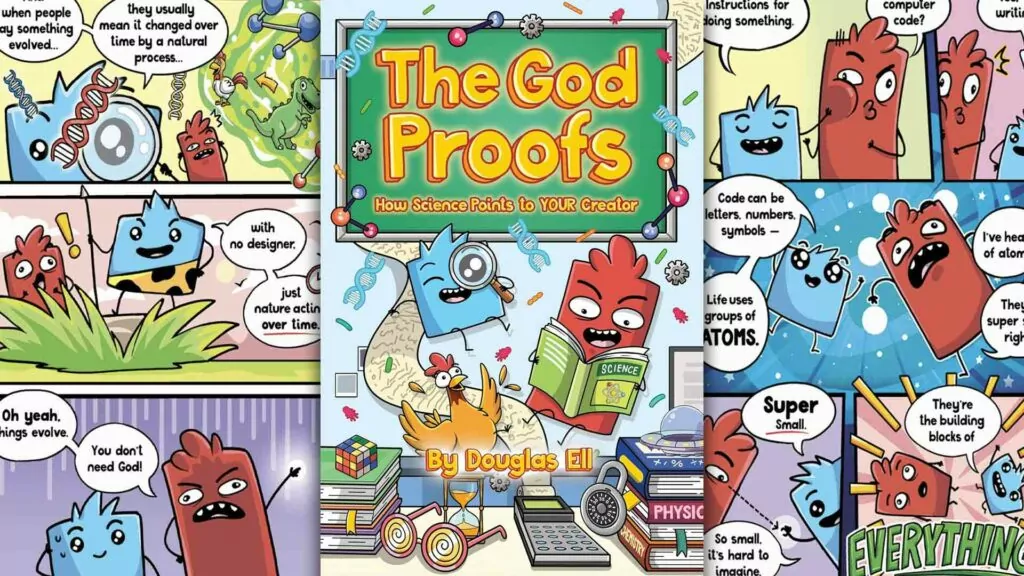In Proverbs 26:4-5 God says we shouldn’t argue with fools…except when we should.
Do not answer a fool according to his folly,
or you yourself will be just like him.
Answer a fool according to his folly,
or he will be wise in his own eyes.
Don’t get in flame wars
The danger in responding to fools is in descending to their level. If a fool is a dishonest questioner – peppering you with one after another, but with no interest in interacting with or listening to your answers – stop responding. In these situations the longer we talk, the more we make it look like the fool has a legitimate point.
And if an online troll hits you with an ALL CAPS EXCHANGES, don’t indulge in any sort of flame war. Here the louder we talk the more we end up looking like just another angry fool. Shouting matches aren’t going to glorify God. All they do is make it hard for anyone listening to tell the difference betwixt the two combatants.
Do answer real arguments
The danger in not answering a fool is to leave his foolishness standing. When a fool offers an argument – misguided, shortsighted, naive, but genuinely offered and open to response and rebuttal – we need to answer him. Our goal is to show him his folly by explaining where his argument will logically take him. After that we can point him to real answers.
Here’s how this looks in real life. In an online forum an abortion advocate wrote:
“I don’t get why a human that lives 80 years with modern medicine is more important than a tree that lives 500 years.”
A tree rates above people? How do we expose this for the folly it is? There are three keys:
- Do follow his argument to its logical end – What would it be like if we actually lived that way?
- Do contrast his foolishness with God’s wisdom – How does his position compare and contrast to what God says?
- Do end on a question – This isn’t must, but it is a good idea. Greg Koukl says a good question can be like putting a stone in someone’s shoe: it’s not big, but it sure is hard to ignore. A question can challenge them to think through what you’ve said. And it can be more winsome than ending on a statement. “Aren’t you wrong?” is challenging enough, but it sure sounds nicer than “You are wrong.”
How that looks
When it comes to our tree and abortion-loving debate partner, our response might look something like this:
“God says that man is the pinnacle of creation, but you place us somewhere behind trees. Do you live your life consistent with that belief? How do you treat trees? Do you read books? (You do know what those are made of, don’t you?) Have you sat around a campfire and enjoyed watching the flames dance over countless wooden carcasses? What is your home made out of? Your coffee filters? Do you use tissues? How about toilet paper?
“God says we matter more than trees. You say trees matter more than us. But if, in your day-to-day routine, you’re participating in the slaughter of trees, doesn’t your lifestyle show that even you don’t believe what you’re saying?”
Now how about a more common example, say someone railing against the 1% not because of anything wrong these rich folk have done, but simply because of how much money they have.
God says we should help the poor, but He doesn’t want us looking at our neighbor’s goods – He calls that covetousness. You argue that because someone has much more than you, that’s obscene, and their wealth should be “redistributed.” But do you live your life consistent with that belief? If you make more than $35,000 US you are a part of the global 1%. Just consider how much more wealth you have someone in Venezuela; when are you going to redistribute your wealth to them?
God said we should help the poor, so redistributing our own wealth is a wonderful idea. But it’s not our job to redistribute other’s wealth. If you think others having more is a reason to take it from them, then what reason can you give that it shouldn’t start with you?
It’s not likely you’ll have someone do an immediate about-face, but you’ll have exposed his foolishness to any others listening in. And you’ve given him something to chew on. Who knows but that God might use this seed you sow today to bear fruit at a later date?












